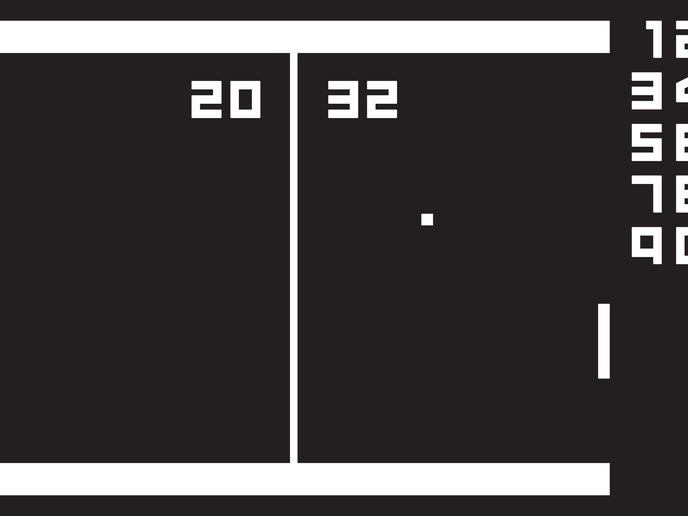Lab-grown brain cells learn to play video game
AI can beat grandmasters at chess. Surely a dish full of brains cells can beat a table tennis video game from the 1970s. A team of scientists at Australian biotech start-up Cortical Labs have taught a brain cell culture living in a lab dish to play the iconic Pong. Results of the study were published in the journal ‘Neuron’(opens in new window). The scientists grew 800 000 brain cells together in an effort to get them to perform goal-directed tasks. Grown from human and mouse neurons, they named the culture DishBrain.
You can teach a cell new tricks
“From worms to flies to humans, neurons are the starting block for generalized intelligence,” first author Dr Brett Kagan, Cortical Labs chief scientific officer, told ‘CNN’(opens in new window). “So, the question was, can we interact with neurons in a way to harness that inherent intelligence?” DishBrain was taught Pong by using electrodes to indicate where the ball and paddles are. Feedback from the electrodes showed DishBrain how to hit the ball by making it act as though it was the paddle. “We’ve never before been able to see how the cells act in a virtual environment,” explained Dr Kagan in a Cortical Labs media release(opens in new window). “We managed to build a closed-loop environment that can read what’s happening in the cells, stimulate them with meaningful information and then change the cells in an interactive way so they can actually alter each other.” “The beautiful and pioneering aspect of this work rests on equipping the neurons with sensations — the feedback — and crucially the ability to act on their world,” co-author Prof. Karl Friston, a theoretical neuroscientist at University College London, further elaborated. “Remarkably, the cultures learned how to make their world more predictable by acting upon it. This is remarkable because you cannot teach this kind of self-organisation; simply because — unlike a pet — these mini brains have no sense of reward and punishment.”
Far-reaching implications
Dr Kagan told ‘CNN’ that the findings could be exploited for “better drug discovery, disease modeling, and understanding how intelligence arises – which in turn could be used to develop new algorithms for machine learning.” He added: “It touches on the fundamental aspects of not only what it means to be human but what it means to be alive and intelligent at all, to process information and be sentient in an ever changing, dynamic world.” The findings also open up possibilities for alternatives to testing new drugs or treatments for diseases. “When people look at tissues in a dish, at the moment they are seeing if there is activity or no activity. But the purpose of brain cells is to process information in real time,” Dr Kagan told the ‘BBC’(opens in new window). “Tapping into their true function unlocks so many more research areas that can be explored in a comprehensive way.” Next, the scientists plan to get DishBrain drunk by using ethanol. They want to find out how alcohol and medicines influence the cells and if their performance suffers when playing Pong.



